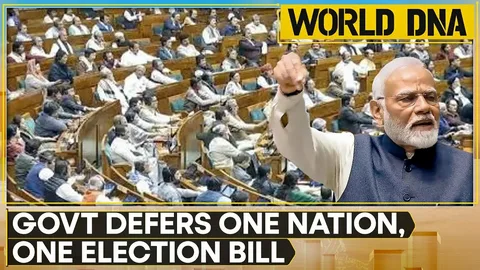India’s ruling Bharatiya Janata Party (BJP) has tabled a parliamentary bill advocating for synchronized state and national elections. Known as the “One Nation, One Election” bill, the proposal aims to streamline the world’s largest democratic exercise by aligning the election cycles of state assemblies and the national parliament.
Challenges of Current Electoral Practices
India’s Vast Electorate
India, with a massive electorate of over 968 million, conducts elections through phased voting to ensure accessibility in its diverse and vast geography. The general elections held earlier this year, which secured Prime Minister Narendra Modi’s third term, spanned six weeks.
Logistical Complexities
Election officials overcame significant logistical challenges, traveling by road, trains, boats, helicopters, and even camels to establish polling stations in remote areas. Adding to the complexity, state assembly elections are currently conducted on varying schedules, often requiring additional resources and security.
Benefits of Synchronizing Elections
Cost and Logistical Efficiency
The proposed bill emphasizes cost reduction and logistical efficiency. According to India’s justice ministry, aligning elections will minimize disruptions caused by frequent polling and streamline governance.
Enhanced Governance
Governments will no longer face constant election cycles, allowing for uninterrupted policy implementation and planning. Simultaneous polls could also lead to more consistent voter turnout and reduce the financial burden associated with repeated election campaigns.
Opposition Concerns
Threats to Federalism
Critics argue that the proposal poses risks to India’s federal structure. Opposition parties claim that merging elections could undermine state autonomy and concentrate power in the hands of the ruling party.
Constitutional and Legislative Challenges
Implementing synchronized elections would require constitutional amendments and significant legislative changes, given India’s decentralized governance model. Concerns about regional representation and political diversity have also been raised.
A Step Towards Electoral Reform
Despite the challenges, the “One Nation, One Election” bill has reignited debates on electoral reform in India. Supporters believe it can strengthen democracy by improving efficiency, while detractors caution against potential threats to the balance of power between the central and state governments.
Conclusion
If approved, this landmark initiative could redefine electoral practices in the world’s largest democracy, marking a significant milestone in India’s governance and democratic evolution.



